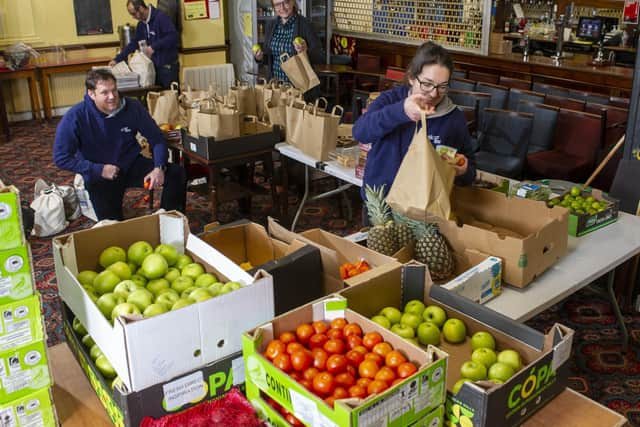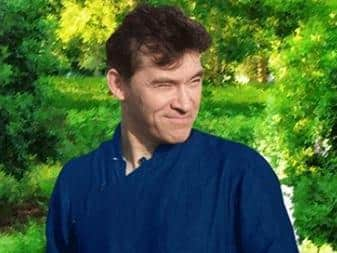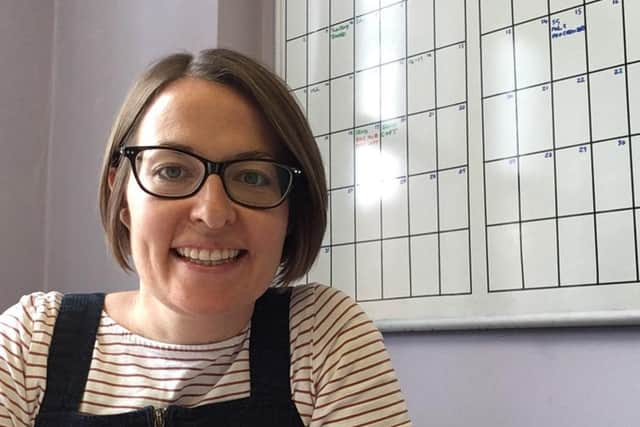The psychology behind the pouring out of pandemic kindness in Leeds
and live on Freeview channel 276
The pandemic which has pressed pause on the world, has created in the villages, cul-de-sacs and sky rises of Leeds, a sense of togetherness and community which hasn’t been seen since the second world war.
In this special report, the Yorkshire Evening Post looks at the effects of volunteering on both the helper and the recipient and how kindness is providing solace in uncertain times.
Advertisement
Hide AdAdvertisement
Hide AdPicking up a loaf of bread or some milk, collecting a prescription or walking the dog for a neighbour or friend that is self-isolating - sounds very simple but can make the biggest difference to the well-being of other people.


Community volunteers
More than 8,000 people from Leeds signed up to the Community Care Volunteer Programme, set up by Leeds City Council, Voluntary Action Leeds (VAL) and other charities at the outset of the coronavirus pandemic in March.
Volunteers are matched by co-ordinators, working in each of the 33 council wards, with organisations or individuals that would most benefit from their help depending on their skills, availability and time.


It could be to collect shopping, deliver medication or drive people to appointments. Some who registered a need for help with the council may already have food and medicines, but simply just want a chat over the phone as they are isolated, lonely and vulnerable
Neighbours
Advertisement
Hide AdAdvertisement
Hide AdHowever, with acts such as these taking place informally anyway among friends and neighbours, the amount of people helping others is actually several more thousands.
Ms Bailey added: “The other side that we are really interested in, is the stuff that happens at street level and people just supporting their neighbours. You don’t have to sign up to be a volunteer to help people or a neighbour you have not known previously other than to say a quick hello to.


“At the moment people want to make these connections with people locally and provide that help. It supports the person who needs that help but does help the person who is volunteering by being able to feel that you can take some actions that are positive in what is a very uncertain world for all of us.”
Positive actions are actually commonplace in times of crisis says a psychologist at Leeds Beckett University.
Blitz Spirit
Advertisement
Hide AdAdvertisement
Hide AdDr Steven Taylor is a senior lecturer in psychology and says the patterns of behaviour being displayed in communities across Leeds now is akin to the ‘Blitz Spirit’.
He told the Yorkshire Evening Post: “A lot of people assume that when there is a crisis like this, or natural disasters, things will break down and lead to chaos and crime and society will break down - but that does not usually happen. It has the opposite effect and people come together. There is a sense of co-operation there.
“When life is in its normal pattern and everything is stable we become quite self-centred and isolated, following our own lifestyle and pursuing our own goals. But when faced with a common purpose or a common threat, we become much more united.”
On a deeper psychological level, Dr Taylor says that most humans have a level of altruism which is the selfless concern for the welfare of others and that in times of crisis, helping others is a way of helping ourselves.
Advertisement
Hide AdAdvertisement
Hide AdHe added: “We want to feel good about ourselves and we want other people to feel good. Apart from psychopaths and sociopaths, for most human beings there is a natural altruism.
“Human beings are connected on a deeper level. Sometimes we lose that and it becomes weakened, but, in situations like this it uncovers itself. It definitely exists and is a real phenomenon.”
“One of the reasons why people become more altruistic makes them feel more connected, it is partially a coping mechanism and it helps us to transcend isolation, separation. It is a reaction to crisis. Kindness brings connection which makes us feel less isolated, unites people and brings the community to a higher level of integration.”
Dr Taylor said that eventually that sense of connection and kindness will fade, but can lead to positive development and this is something that Voluntary Action Leeds want to build upon.
Future
Advertisement
Hide AdAdvertisement
Hide AdMs Bailey said despite lockdown and isolation, people are making more of an effort to connect with others and, groups that did face to face work have found new ways of working such as via Zoom or Skype and could increase the capacity to reach out to more people.
She added: “Inevitably, this has demonstrated to organisations, groups and people across Leeds we can do things in a different way and keep up that connection with people. I think it is a real game-changer with the way people communicate with each other.
“The amazing response from people wanting to volunteer, we want to build on and we want to use this focus and what it can do for you as a volunteer and the others that benefit.
“How can we make sure, going forward after this is over, we are building a really strong legacy for Leeds in terms of how communities support each other and that action keeps going?
Advertisement
Hide AdAdvertisement
Hide Ad“Volunteering has shown that people care about one another, and their area, and that is something to be really positive about going forward.”
A message from the Editor:
Thank you for reading this story on our website. These are challenging times but the team at the Yorkshire Evening Post need your support more than ever in the weeks ahead.
While I have your attention, I also have an important request to make of you. In order for us to continue to provide high quality and trusted local news on this free-to-read site, I am asking you - wherever possible and providing it is safe for you to do so - to also please purchase a copy of our newspaper.
Inevitably falling advertising revenues will start to have an impact on local newspapers and the way we continue to work during this period of uncertainty. So the support of our readers has never been more important as we try to make sure that we keep you connected with the city you live in during this time. But being your eyes and ears comes at a price. We need your support more than ever to buy our newspapers during this crisis.
Advertisement
Hide AdAdvertisement
Hide AdOur team of trusted reporters are working incredibly hard behind the scenes - from kitchen tables and spare bedrooms - to look at how we can do this and your continued support to the YEP will help to protect its viability in the days and weeks ahead.
For more details on our subscription offers please visit www.localsubsplus.co.uk/YEP, email [email protected] or call us on 0330 4033004.
Thank you
Laura Collins
Editor